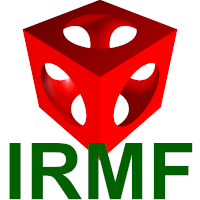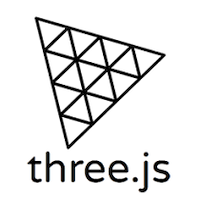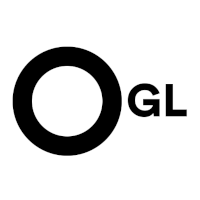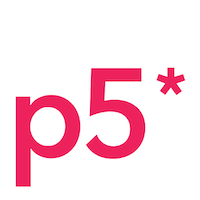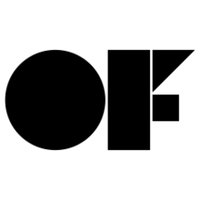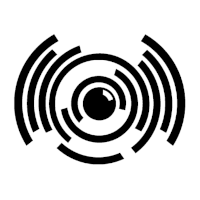LYGIA Shader Library
LYGIA is the biggest shader library. Battle proof, cross platform and multi-language. Is made of reusable functions that will let you prototype, port and ship projects in just few minutes. It's very granular, flexible and efficient. Support multiple shading languages and can easily be added to virtually any project. There are already integrations for almost all mayor enviroments, engines and frameworks.
Best of all, LYGIA grows and improves every day thanks to the support of the community. Become a Contributor or a
How to use it?
In your shader just #include the functions you need and then use them:
If you just need to resolve the dependencies of a shader file you got, the fastest way would be to drag&drop your shader file in the box below. We can resolve the dependencies for you.
LYGIA have been integrated into the following Engines, Frameworks, Creative Tools and online editors:
If you are working on a project and want to use LYGIA, you have two options: cloning a local version that then you can bundle into your project; or using the server ( https://lygia.xyz ) to resolve the dependencies online. How each one works?
LYGIA Locally
If you want to work locally, you must ensure that your environment can resolve #include dependencies. You can find some examples in here specially for GLSL. Then you just need to clone LYGIA into your project relative to the shader you are loading:
git clone https://github.com/patriciogonzalezvivo/lygia.git
or as a submodule:
git submodule add https://github.com/patriciogonzalezvivo/lygia.git
Alternatively you may clone LYGIA without the git history and reduce the project size (9MB+) with the following command:
npx degit https://github.com/patriciogonzalezvivo/lygia.git lygia
If you are concerned about the size of the library you might also be interested on pruning the library to only the language you are using. You can do that by using the prune.py script. For example:
python prune.py --all --keep glsl
Alternatively, if your are working on a npm project, there is a npm bundle you could use.
If you are working on web project you may want to resolve the dependencies using a bundler like vite glsl plugin (local bundle), esbuild glsl plugin (local bundle) or webpack glsl plugin (local bundle).
LYGIA server
If you are working on a cloud platform (like CodePen or Observable ) you probably want to resolve the dependencies without needing to install anything. For that just add a link to https://lygia.xyz/resolve.js (JS) or https://lygia.xyz/resolve.esm.js (ES6 module):
<!-- as a JavaScript source -->
<script src="https://lygia.xyz/resolve.js"></script>
<!-- Or as a ES6 module -->
<script type="module">
import resolveLygia from "https://lygia.xyz/resolve.esm.js"
</script>
To then resolve the dependencies by passing a string or strings[] to resolveLygia() or resolveLygiaAsync():
// 1. FIRST
// Sync resolver, one include at a time
vertSource = resolveLygia(vertSource);
fragSource = resolveLygia(fragSource);
// OR.
// ASync resolver, all includes in parallel calls
vertSource = resolveLygiaAsync(vertSource);
fragSource = resolveLygiaAsync(fragSource);
// 2. SECOND
// Use the resolved source code
shdr = createShader(vertSource, fragSource);
This function can also resolve dependencies to previous versions of LYGIA by using this pattern lygia/vX.X/... or lygia/vX.X.X/... on you dependency paths. For example:
#include "lygia/v1.0/math/decimation.glsl"
#include "lygia/v1.2.1/math/decimation.glsl"
How is LYGIA organized?
The functions are divided into different categories:
math/: general math functions and constants:PI,SqrtLength(), etc.space/: general spatial operations:scale(),rotate(), etc.color/: general color operations:luma(),saturation(), blend modes, palettes, color space conversion, and tonemaps.animation/: animation operations: easinggenerative/: generative functions:random(),noise(), etc.sdf/: signed distance field functions.draw/: drawing functions likedigits(),stroke(),fill, etc/.sample/: sample operationsfilter/: typical filter operations: different kind of blurs, mean and median filters.distort/: distort sampling operationslighting/: different lighting models and functions for foward/deferred/raymarching renderinggeometry/: operation related to geometries: intersections and AABB accelerating structures.morphological/: morphological filters: dilation, erosion, alpha and poisson fill.
How is it designed?
LYGIA is designed to be very granular (each file holds one function), multilanguage (each language have it's onw file extension) and flexible. Flexible how?
There are some functions whose behavior can be changed using the #defines keyword before including it. For example, gaussian blurs are usually are done in two passes. By default, these are performed on their 1D version, but if you are interested in using a 2D kernel, all in the same pass, you will need to add the GAUSSIANBLUR_2D keyword this way:
#define GAUSSIANBLUR_2D
#include "filter/gaussianBlur.glsl"
void main(void) {
...
vec2 pixel = 1./u_resolution;
color = gaussianBlur(u_tex0, uv, pixel, 9);
...
}
In the same way you can change the sampling function that the gaussian uses. Ex:
// from
#define GAUSSIANBLUR_SAMPLER_FNC(TEX, UV) texture2D(TEX, UV)
// to
#include "lygia/sample/clamp2edges.glsl"
#define GAUSSIANBLUR_SAMPLER_FNC(TEX, UV) sampleClamp2edge(TEX, UV)
Learn more about LYGIAS design principles in the DESIGN.md file.
Contributions
LYGIA has a long way to go and welcomes all kinds of contributions. You can help by:
- Bug fixing
- Translation, keeping parity between languages (GLSL, HLSL, MSL, WGSL, TSL, CUDA, OSL, etc) is a big part of the challenge. Not all language are the same and we want to make sure make sure each function is optimized and carefully crafted for each enviroment. This means, the more eyes looking at this, the better. Please make sure to read and understand the Design Principles before starting.
- New functions or improving the current implementations. Please take a look to the Contributing Guidelines before starting.
- Documentation. Each function has a header with some information describing the function. Make sure to fill this information when adding a new function.
- Adding new examples and integrations for new environments like: Godot, ISF, MaxMSP, etc.
- Financial sponsorships. Right now, the money that flows in is invested on the server and infraestructure. Long term plan will be to be able to pay lead contributors and mantainers.
Collaborators and sponsors are automatically added to the commercial license. Making a PR or subscribing to the github sponsors program is the shortest path to get access to the commercial license. It's all automated, not red taping. LYGIA belongs to those that takes care of it.
License
LYGIA belongs to those that support it. For that it uses a dual-licensed under the Prosperity License and the Patron License for sponsors and contributors.
Sponsors and contributors are automatically added to the Patron License and they can ignore any non-commercial rule of the Prosperity License software.
It's also possible to get a permanent commercial license hooked to a single and specific version of LYGIA.
If you have doubts please reaching out to patriciogonzalezvivo at gmail dot com
Credits
Created and mantained by Patricio Gonzalez Vivo( Mastodon | Twitter | Instagram | GitHub ) and every direct or indirect contributors to the GitHub.
This library has been built in many cases on top of the work of brilliant and generous people like: Inigo Quiles, Morgan McGuire, Alan Wolfe, Matt DesLauriers, Bjorn Ottosson, Hugh Kennedy, and many others.
Also is being constantly mantain, translated and/or extended by generous contributors like: Shadi El Hajj, Kathy, Bonsak Schiledrop, Amin Shazrin, Guido Schmidt, and many others.





